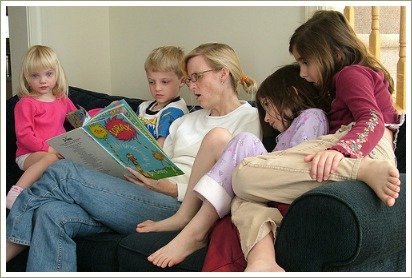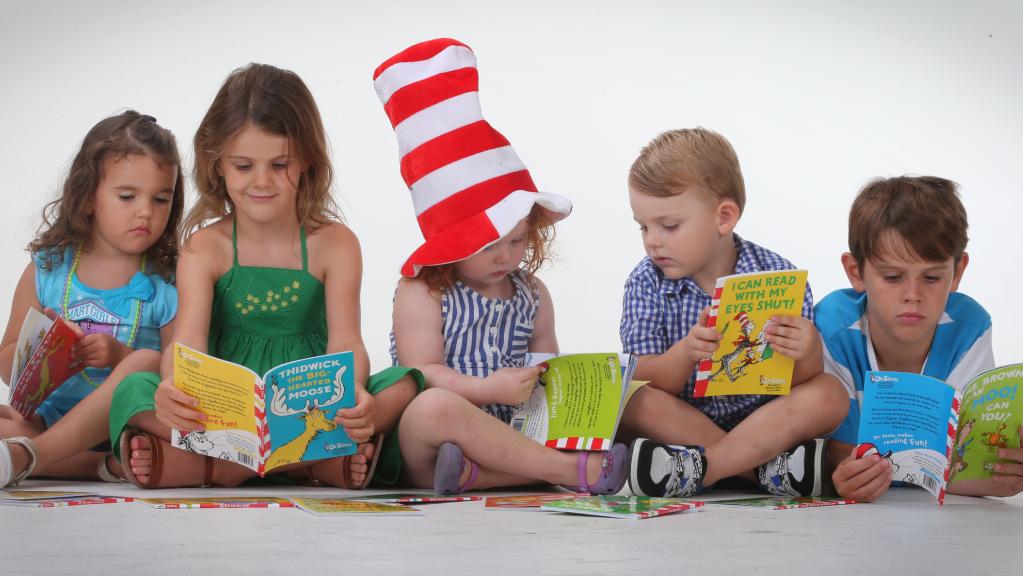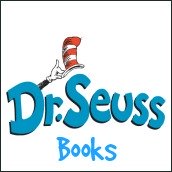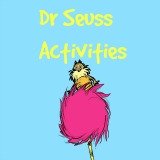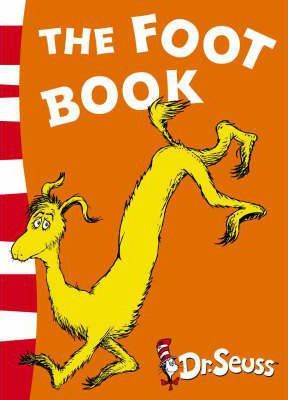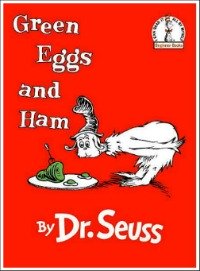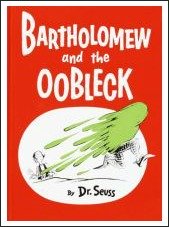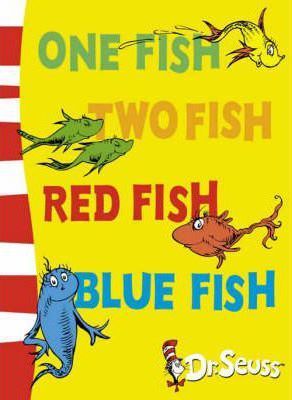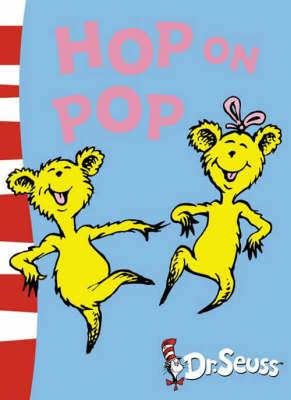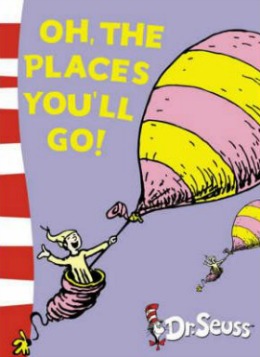You are here: home / Dr Seuss books / reading Dr Seuss books
Reading Dr Seuss Books
Reading Dr Seuss books to your children is great fun but did you know it will also help them develop important language skills and even lay the foundations for learning to read? Amazing but true!
Reading aloud helps children develop a rich vocabulary, background knowledge about the world and something called phonological awareness which is a critical pre-reading skill but reading Dr Seuss books aloud is especially good. This is because the rhymes, rhythms and made-up words which are characteristics of all Dr Seuss books are particularly great stimulators of phonological awareness. In fact, reading Dr Seuss books ticks all the boxes when it comes to helping children develop phonological awareness and can actually prepare the way for them to learn to read easily and naturally as they get older.
As an EAL/D (ESL) teacher, I even read Dr Seuss books with my 10-year-old students who were new to Australia. I read them aloud so the children could become familiar with the sounds, rhythms and rhymes of the language and they read them aloud together to practise their reading.
One of the great things about Dr Seuss books is that they’re so much fun for adults to read. The nonsense rhymes and repetition combine to create sentences that just roll off the tongue in a satisfying rhythm which babies and young children love.
And finally, reading Dr Seuss books is also great because children of all ages enjoy them for different reasons at each stage of their development. Newborn babies love listening to the rhythm and tone of your voice as you read while older babies will start to take an interest in the rhymes and colourful pictures. The books will continue to delight toddlers and are great to share with young children who are learning to read.
Reading Dr Seuss Books: Ages & Stages
Babies
Dr Seuss books are wonderful to read to babies and you can start from the day your child is born. In fact, Dr Seuss was very interested in the early research into how babies in the womb respond to sounds and in 1997 one of his books was rewritten and published in a version specially designed to be read to babies in utero.
As your baby grows, she will continue to appreciate the rhythm and sounds of the words in the Dr Seuss stories. In fact, hearing the way language is used in these books is really, really important for a baby’s development because it’s the way that young children develop a skill called phonological awareness which is crucial for learning to read later on.
Toddlers and Pre-Schoolers
From about the age of two years, children move from simply loving the way the Dr Seuss stories sound to understanding the stories themselves and the humour they contain. Your child will still love to hear you read his favourite Dr Seuss books and will appreciate them on a new level, reciting the rhymes and giggling over the illustrations. At this stage, phonological awareness is still developing and you can use the Dr Seuss books to help this along by playing games with the words.
At this age, some parents make the mistake of trying to teach their child to read. Why do I say this is a ‘mistake’? The main reason is that parents tend to get stressed about teaching reading and the child picks up on this and becomes anxious too. The last thing you want is for your child to become stressed and anxious around books and reading because there’s a very real risk that this will turn your child off reading and books forever.
The really exciting thing is that, if your child has been read to often from an early age and if those reading sessions have been fun and exciting, he will learn to read naturally and easily without much at all in the way or formal teaching. I know this might be hard to believe but its true! I’ve seen it happen with many children, including my own three and my five nephews. It’s the magic of reading aloud and the Dr Seuss books can play a important role in it.
Young Readers
When your child begins to learn to read, reading her old favourite Dr Seuss stories will help her gain confidence as she reads the familiar words.
At this stage, it’s easy to make the mistake of thinking your child is ‘not really reading’ because she’s ‘just memorised’ a story she knows well. But this 'pretend reading' is an important step in the process so be careful to say only positive things! Continue to read aloud and to discuss the words and sounds in the story. Because she is phonologically aware (even though she doesn’t know this), your child will quickly progress to sounding out words she hasn’t seen before. Yes, she will make mistakes. Your role is to be unfailingly positive and encouraging so she gains confidence, enjoys reading and wants to read.
